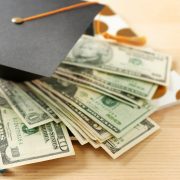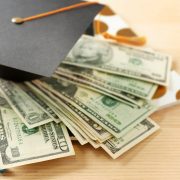It is no longer a surprise that occupational licensing laws prevent otherwise entrepreneurial people from entering the workforce. But the government has taken these laws one step further. Instead of solely being a barrier to entry into the workforce, which is bad enough on its own, occupational licensing laws are now being used to penalize those who have fallen behind on their student loan payments.
One Nurse’s Story
Shannon Otto wanted to be a nurse since she was 16-years-old, when she had the opportunity to shadow her aunt who worked in an emergency room. After dedicating the time and money necessary for achieving her dream, Otto had finally become a nurse in Nashville, Tennessee, a state that had been experiencing a shortage of nurses.
But after becoming a nurse, Otto started having epileptic seizures that prevented her from being able to work. Without a steady stream of income, Otto was unable to make her monthly payments and defaulted on her student loans. After some time, Otto was able to manage her seizures to a point where she would be able to return to her job once more. But just before she was about to return to work she received some disappointing news from the Tennessee Board of Nursing.
Since Otto had been unable to make her student loan payments as she dealt with her epileptic seizures, the state had responded by suspending her nursing license. If she wanted that license back, and thus the ability to work, she would have to pay more than $1,500, money she clearly didn’t have after spending so much time out of work.
Otto commented on the board’s decision saying:
“I absolutely loved my job, and it seems unbelievable that I can’t do it anymore,”
The Student Loan Problem
Otto’s story is just one of many. The total amount of student loan debt in the United States now exceeds the total amount of credit card debt. And while this statistic on its own is extraordinary, there is even more to it than initially meets the eye. In order to get approved for a credit card, the company you are applying through will check your credit and ensure that your track record is worthy of being loaned money. This ensures that they are not lending money to someone who may even have the means necessary for repayment.
With a student loan, your past will not be used against you because for most 18-year-olds entering college, they have no credit history at all. In fact, many have never had a job. But this hasn’t prevented the government from loaning out large sums of money to very young adults with no financial history and no experience in the workforce.
But more people being able to subsidize their education costs with government loans means more people able to attend college. And more college graduates means that those special degrees are no longer rare anymore and they no longer give you an edge over others in the workforce marketplace. If everyone has a degree, that degree will not hold as much value.
And when graduation day came, many students found that despite their pricey diplomas, they were unable to find work. No job meant that when those student loan payments came due, many were unable to pay them.
It is all too easy to fall behind on student loan payments, as Otto’s story has shown us. Whether you are out of work for a few months or simply can’t afford your payments, missing a payment happens to almost everyone. But when one missed payment turns into many, the government now has some very powerful leverage to use against you.
When students take out student loans, they usually take them out specifically to help solidify their future career plans. Few think that these loans may actually ruin their ability to work. But that is what is happening. For those who have fallen behind on their payments and have earned a “default” status, the government can, and often do, revoke occupational licenses needed to work.
Currently, 19 states reserve the right to strip you of your occupational license if you default on your student loans. One state, South Dakota, will also go as far as taking away your driver’s license. But while this is supposed to be viewed as a punishment for not paying the federal government, it doesn’t really make much sense. If you strip someone of their ability to work, you are not increasing the likelihood that they will pay the loan back. In fact, you are making it increasingly difficult to do so.
While this may sound almost too outrageous to believe, at least 8,700 instances of professional licenses being taken away from those who have defaulted on their student loans have occurred. However, the actual numbers are much higher, as records of revoked licenses are not kept by most licensing boards.
As it stands, the government has too much power over our own individual careers. And by preventing us from earning a living, the state also interferes with our ability to pursue our own individual destinies, and this is absolutely terrifying.













